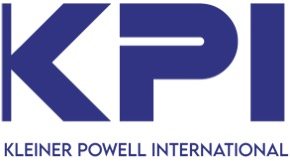Newsletter
Highlights:
Yoshua Bengio joins Safeguarded AI as a scientific director to build an AI system that can keep other AI systems in check.
Steve Simon and other secretaries of state urge Elon Musk to fix X’s chatbot from spreading misinformation around the election.
Humane’s AI Pin is being returned at a rapid rate after flopping upon release.
Credits to REUTERS/Aly Song
Business
ByteDance joins OpenAI's Sora rivals with AI video app launch (Reuters)
Like many Chinese tech firms currently competing with OpenAI’s Sora, ByteDance has released a software that can generate videos based on text prompts. ByteDance is the company behind social platform Tiktok and video editing software Capcut. Unlike Sora, which is not available to the public yet, ByteDance’s “Jimeng AI” is available on the Apple App Store for Chinese users. Jimeng AI offers a 69 yuan ($9.65) monthly subscription and allows the creation of 2,050 images or 168 AI videos per month.
Google's deal for Character.AI is about fundraising fatigue (Axios)
The co-founders of Character.AI, a popular AI chatbot company, are rejoining Google, where they worked until 2021, alongside more than two dozen Character AI researchers. Google will also sign a non-exclusive license for Character.AI’s models. In the past, Character.AI has talked about its closed-loop strategy, whereby it trained its own LLM and fed the usage data from chatbots back into training. Now it will pivot exclusively to post-training and use open-source models developed by others, like Meta’s Llama.
Encouraging Impactful Uses of AI Through Llama Impact Grants Program (Meta)
Meta has opened applications for the Llama 3.1 Impact Grants program, designed to support endeavors using the open source AI model for societal benefit. Last year’s Llama Impact Grant program aimed to address criticial global challenges such as education and the environment. This year’s award will total $2 million USD and eligible organizations from around the world can apply online for an award up to $500,000 USD.
Credits to Graeme Sloan/Sipa USA via AP Images
Regulation
AI “godfather” Yoshua Bengio has joined a UK project to prevent AI catastrophes (TechReview)
Yoshua Bengio, a Turing Award winner who is considered one of the “godfathers” of modern AI, is joining the UK government funded project called Safeguarded AI as a scientific director. Safeguarded AI aims to build an AI system that can check whether other AI systems deployed in critical areas are safe. It would supplement human testing with mathematical analysis, providing quantitative data like a risk score. “We’re currently racing toward a fog behind which might be a precipice,” says Bengio. “We don’t know how far the precipice is, or if there even is one… [so] we need to build up the tools to clear that fog.”
Juliette has collaborated with Bengio before on an exciting series of Interdisciplinary Dialogues on the societal impacts of AI. In the series, we invite a guest speaker and panelists from the fields of science and engineering, health and humanities and social sciences to discuss the advances, challenges and opportunities raised by AI. The first dialogue in this series began with Yoshua Bengio.
Steve Simon urges Musk to fix X’s AI chatbot over election misinformation (Reformer)
Minnesota’s Steve Simon and four fellow secretaries of state wrote a letter to Elon Musk urging him to fix X’s artificial intelligence chatbot, Grok. Last month, Grok shared election misinformation to millions of users, generating false headlines that Vice President Kamala Harris was ineligible to appear on the presidential ballot. It also stated that the deadline to edit ballots had passed in several states. Both of these things are false. “In this presidential election year, it is critically important that voters get accurate information on how to exercise their right to vote,” Simon said, urging voters to “reach out to their state or local election officials to find out how, when and where they can vote.”
Credits to NASA, ESSA, Joseph Olmsted (STScI)
Science
Over 300 hidden planet-devouring stars within the Milky Way found by AI (Space)
All stars are fated to die, and when they do, they swell up to hundreds of times their current size and swallow up any orbiting planets in reach. After this, they become dead remnants called a “white dwarf.” Studying white dwarf stars is “the only bona fide way to actually figure out what planets outside the solar system are made of,” according to Keith Hawkins, an astronomer at U of Texas. Finding them is “critical,” although not easy. Tell-tale signs of planetary polution like iron and magnesium are extremely subtle and difficult for telescopes to discern. Thus, Hawkins and colleagues developed an AI algorithm that is 99% accurate at spotting cosmic graveyards, and could increase the number of known polluted white dwarfs tenfold.
Credits to Humane
Entertainment
Humane’s AI Pin Is Seeing More Returns Than Sales, Report Says (Gizmodo)
Humane’s AI Pin launched to a rocky start, labeled “the worst product ever reviewed” by renowned tech Youtuber Marques Brownlee. It was overall deemed buggy, slow, and too expensive. Humane hoped to sell 100,000 pins within the first year, but now out of 10,000 units sold, only 7,000 haven’t been returned (yet). According to Brownlee, it’s better to keep AI as a feature not a product for now, in light of the AI Pin and Rabbit R1’s failure.





